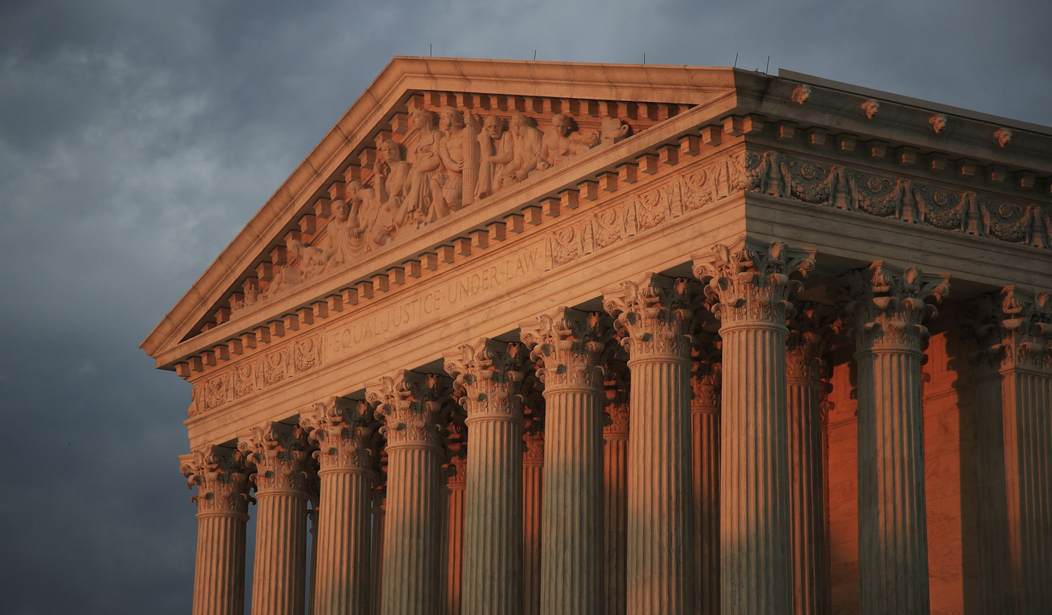Last week during the debates, almost every Democratic candidate brought up the issue of abortion and the Supreme Court. Over the past few years, only one SCOTUS case dealt with abortion: NIFLA v. Becerra.
It’s now been one year since the Supreme Court announced their landmark ruling in favor of the free speech rights of pro-life pregnancy centers and all Americans. It comes as no surprise that President Trump touched on the significance of this case in a speech this week at the Faith and Freedom Coalition. Vice President Pence tweeted about it along with hundreds of others.
Every opinion of the Supreme Court of the United States has a major impact. Rarely can it be said that one SCOTUS opinion saved the Constitution. However, nearly one year ago SCOTUS did exactly that.
In NIFLA v. Becerra the Court reviewed a California law that mandated pro-life pregnancy centers advertise for abortion. The law was another effort by the abortion industry to shut down the work of pro-life pregnancy agencies.
Led by Planned Parenthood, the abortion industry has for three decades attempted to slander and discredit this pro-life network. In 1982 Planned Parenthood began a false nationwide narrative that such organizations — dubbed “fake clinics” — are deceptive, fraudulent, engage in medical malpractice, and lie to women about abortion. In fact, such centers annually provide an estimated $161 million in taxpayer savings in the form of free services that empower mothers considering abortion to choose life.
Recommended
Most of these agencies are faith-based and operate without government funds. They have little money and are staffed primarily by volunteers. They are passionately driven by a faith in a higher power that transforms lives, melts hearts of stone, and honors the lives of both mothers and babies in unplanned pregnancies. “Love them both” is their motto.
So, what is “deceptive” and “fake” about the work of these life-affirming agencies? According to abortion proponents it is that they do not provide abortions or abortion referrals.
This negative public relations campaign has failed miserably to close pro-life pregnancy centers. In the early 1980s such centers numbered a few hundred. Today, this national network consists of more than 2,500. The attempts at legislative and legal actions against these life-affirming nonprofits have been unsuccessful until California’s efforts in 2015.
In 2015 California passed its “Reproductive Fact Act” requiring pro-life medical clinics to post a sign in their waiting areas advising patients of a right to a state-funded abortion and listing a telephone number to call to get the abortion. The sign must be posted in large font and in all “primary languages” spoken in the jurisdiction where the pro-life center exists. In Los Angeles County this requires the sign to be printed in thirteen different languages.
The National Institutes of Family and Life Advocates filed suit against California seeking to enjoin the law as a violation of the free speech rights of its California network of 155 pro-life centers. In a landmark 5-4 opinion authored by Justice Clarence Thomas, SCOTUS agreed with NIFLA.
The law, according to Thomas, amounts to content discrimination against pro-life centers and is blatantly unconstitutional. The concurring opinion by Justice Anthony Kennedy went further and said the law was also viewpoint discrimination enacted because the state did not like the pro-life viewpoint of pregnancy centers.
Can the government mandate that groups or individuals speak a message with which they fundamentally disagree?
Can the government mandate that Alcoholics Anonymous post a sign telling its clients where the local liquor store is?
Can the government mandate that the American Cancer Society promote cigarettes?
The answer to these questions would be “yes” if SCOTUS had ruled against NIFLA. This opinion, however, protects free speech rights and does not allow the government to compel one to speak a message which violates one’s conscience.
The impact of this decision was immediate. Shortly thereafter, a permanent injunction was entered in federal court against the state of Hawaii and its law that was nearly identical to the California mandate. The difference in Hawaii, however, is that a church, the Calvary Chapel of Pearl Harbor, houses a pro-life center within its facility. Thus, the law would have mandated that the church must post the sign within its walls. However, because of the NIFLA decision the free speech rights of churches are protected.
The First Amendment to our Constitution speaks of five fundamental freedoms that define the unique American concept of ordered liberty. Of these, the first two – freedom of religion and speech – are foundational to American liberty without which the rest of our freedoms are meaningless. NIFLA v. Becerra protects these two fundamental constitutional freedoms. In doing so, it preserves the American republic.
One year ago constitutional protection for individual liberties was endangered. A constitutional crisis was on the horizon. This crisis was averted through the decision of NIFLA v. Becerra. Wisely-appointed Supreme Court justices stood firm to protect the constitutional liberty of all.
We are elated and grateful for this victory that benefits all Americans.

























Join the conversation as a VIP Member